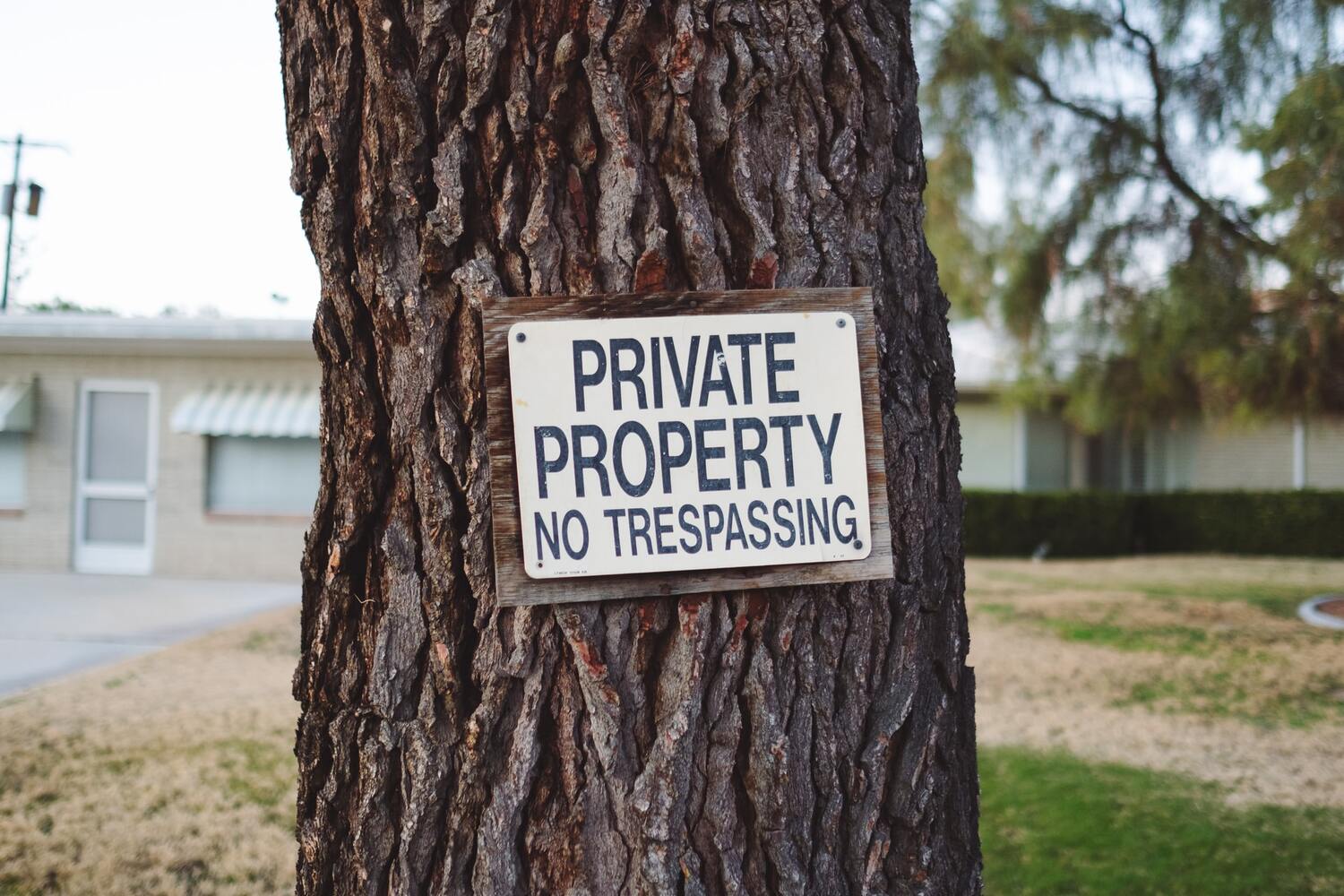Squatters Rights: How To Deal With Trespassers on Your Property

It’s a scary feeling when you visit your property and find an unwelcome person living inside. No one likes squatters. Who knows what kind of damage they may have caused? But, before you take action, it’s essential to familiarize yourself with squatters rights.
As a real estate investor, I’ve had my share of vandalism and intentional damage to one of my rental properties. Thankfully, no one was at the property when I arrived. However, I did have to call the authorities and complete a police report.
For absentee owners who have out-of-state investment properties, such as a townhouse or a second home, you also want to be prepared. I reached out to a good friend and business associate to answer questions about squatters and squatters’ rights.
John C. Chatelain is an Attorney at Law at the law firm Chatelain & Maynard Law Firm and has over 41 years of practice. He is also a seasoned real estate investor and president of the Metropolitan Omaha Property Owners Association (MOPOA).
My real estate agent introduced me to John, and I quickly learned that he supports many investors in our area. He helped me set up my limited liabilities company for my first rental unit. To this day, I still stop by his law firm to drop off homemade eggrolls each time I acquire a new rental property.
So, pull up your chair as I cross-examine John on squatter’s rights. John will provide his legal advice. However, it’s important to note that some of his responses may be specifically for Nebraska. For that reason, be sure to contact a legal professional with laws specific to your state.
If there are no objections, let’s begin!
What is Squatting, And Is It Legal? What’s the Difference Between Squatting And Trespassing?
Squatting is occupying real estate without any right to do so. Squatting and trespassing are similar. Trespassing can be a civil matter but is usually thought of as a criminal offense, whereas there is no criminal offense entitled to squatting.
What Are Squatters Rights?
Squatters have no legal right to occupy another person’s property unless their status ripens into a legal status due to some action or lack of action on the property owner’s part, which can recognize the squatters’ rights as a tenant.
Why Do Squatters Have Rights?
Squatters have no legal right to occupy the property. Thus, a squatter must vacate.
Do All States Have Squatters Rights? How Does One Find Out If a State Has Squatters Rights?
One who owns property in another state would be wise to research the local laws in that state regarding squatters’ status.
How Does Someone Evict A Squatter?
The Nebraska Residential Landlord Tenant Act (NRLTA) governs the relationship between landlords and tenants. That set of laws governs how an owner should evict a tenant.
Concerning a squatter, there would be no rental agreement. Therefore the NRLTA would not apply. According to the Wrongful Detainer Law, an owner would evict a squatter, and they would serve a notice upon the individual to move. If they didn’t move, an owner could file a complaint in the court system for an order of restitution.
Is There Anything An Owner Cannot Do When Trying To Evict a Squatter?
If an owner learns that a squatter occupies the property, owners should start legal procedures to remove the person immediately. However, the property owner needs to exercise caution so that the squatter’s status does not ripen into a landlord/tenant relationship.
The property should evict the squatter following the statutory procedures outlined in the Wrongful Detainer Law. Legal consequences are likely to accrue to the property owner who doesn’t follow the law in removing the squatter.
How Can One Protect Their Home or Property From a Squatter?
Concerning your personal residence, if you plan to be away for a prolonged statutory period, it would be wise to have another person keep an eye on the property on your
Behalf. Concerning a vacant rental property, it would be vital for you to periodically inspect the property to make sure no one is wrongfully occupying it.
What is Adverse Possession? How Do You Avoid It?
Adverse possession is a legal doctrine that can effectively transfer title to real property to one who has possessed the property, without the property owner’s permission, for the statutorily prescribed time.
When the rightful owner becomes aware that another party is wrongfully occupying the land, the landlord must immediately remove that person to avoid an adverse possession claim.
In Nebraska, squatters that claim adverse possession can gain legal ownership of the property. Squatters that want to claim adverse possession must prove actual, continuous, exclusive, and notorious possession.
Furthermore, squatters must occupy the property for at least 10 years. The years of continuous possession cannot be reduced even if the squatter has “color of title.” However, if the landlord becomes disabled, it can be extended to 20 years. Lastly, if the squatter gains actual possession or legal title, they still don’t receive water rights.
Any Last Remarks for Anyone Interested In or Hesitant to Get Into Real Estate Investing?
Real estate is an excellent investment, but the investor must know the rules. There is no better learning source in the Omaha area than Metro Omaha Property Owners Association (MOPOA), especially for your first rental property.
I recommend joining MOPOA and supporting the organization by attending its meetings and learning from those who have already been successful in the business. Also, there are great networking opportunities in MOPOA.
Join your local landlord group. If your community doesn’t have one, start one. You will need both the education and political support that such an organization can provide.
Another essential technique is to put together your team: a Realtor, real estate lawyer, insurance expert, mortgage lender, electrician, plumber, HVAC contractor, general contractor, etc. In good faith, be loyal to your team members so that when you need them, they will be there when you need them.
Final Words
A big thanks to John Chatelain for discussing the squatters rights law and adverse possession laws. This information helps the actual owner and landlord on how to handle this unfortunate situation.
No one likes it when someone else tries to claim possession of their personal property. However, be sure to speak to an attorney in your local area to determine the specific state law to take legal action. They can provide the proper advice, such as serving a written notice or calling the authorities and are more familiar with Nebraska’s revised statutes.
John also handles work outside of real estate issues. For example, he helps with estate planning, litigation, personal injury, and trusts. If ever you want to seek his legal advice, you can easily reach him at john@jchatelainlaw.com.
If you want to start investing in real estate but are hesitant to manage tenants, consider hiring a property management company. A tenant may have a maintenance issue with your property, but you don’t have to worry about it. Someone else will handle the lease agreement with the tenants to pay rent. Then, all you have to do is pay the mortgage, property taxes, and other monthly expenses.





